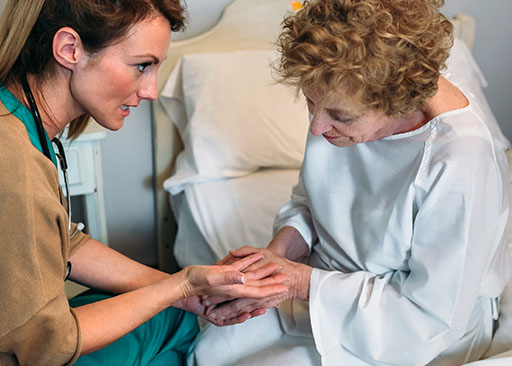What To Expect As A Behavioral Health Technician

You may also help the patient develop new strategies for dealing with stress and anxiety. In addition to providing support services, you may also be involved in research projects related to mental illness or addiction. You should have experience working with patients and be comfortable interacting with people from diverse backgrounds under the supervision of a licensed healthcare professional.
Job Responsibilities
Job responsibilities typically include performing tasks such as administering medication, providing emotional support, and monitoring patient behavior. Behavioral health technicians may also be responsible for conducting assessments, counseling, and managing care plans. Some of the most common responsibilities in a typical day include maintaining accurate documentation of patient progress and assessment plans.
Administering Medication
Some behavior wellness professionals may use an automated dispensing system that dispenses medications directly into the patient’s hand. Others may place the medicine in a pill bottle and give it to the patient to take with them.
Provide Emotional Support
Behavior health technicians provide emotional support to patients by providing information and resources, listening attentively, and offering assistance as needed. Behavior health technicians are trained in the art of crisis intervention and work with individuals who may be struggling with various behavioral issues, such as substance use.
They understand that the patient’s experience is essential, so they take the time to listen carefully and offer support in whatever way possible, including emotional exercises. Behavior health technicians can help patients feel understood and supported during stressful situations with compassion.

Monitor Patient Behavior
They typically monitor patient behavior by observing the patient and recording any observable behaviors, such as their vital signs. Behavior health technicians may also ask the patient questions about their thoughts or feelings related to their behavior and may provide support or advice based on what they observe.
Developing strong observational skills is crucial for behavioral wellness professionals to accurately assess and provide effective options for their patients. This may involve hours of training to ensure that they are able to accurately identify and interpret patient behavior.
Provide Information
Behavior health technicians inform patients about their behaviors and how to change them. They may also help patients understand why they are engaging in certain behaviors and suggest ways to cope with those behaviors. Behavior health technicians may also provide education about mental and physical issues.
Help With Daily Activities
They assist with activities of daily living, such as dressing, hygiene, bathing, and eating. They may also help with tasks that are difficult for the patient because of a mental or physical disability. Behavior health technicians work closely with doctors and other professionals to support patient care in their everyday lives, including in mental facilities.
Care Coordination
Behavior health technicians use medical case management to coordinate care for individuals with mental illness and their families. Behavior health technicians help coordinate appointments, medications, and other assessments to ensure that the individual receives the most effective care possible for developmental issues. The certification process for behavior health technicians is an important step in ensuring that they have the necessary skills and knowledge to provide quality care.
Discharge Planning
They assist with discharge planning by compiling a comprehensive plan that includes goals, objectives, and targets. Help the patient understand their protocol and how to best complete it. They help ensure patients are ready to live independently and make healthcare choices. Behavior wellness professionals help create an inpatient and discharge plan that meets those goals, objectives, and targets for individuals with autism.
Maintain Patient Records
Behavior health technicians help to maintain patient records by recording patient information, such as name, address, and medical history. They may also enter data from medical charts into a computer system so other staff members who need to know can easily access it. Behavior wellness professionals may also provide support services to patients struggling with mental or emotional issues.
Why Become a Behavioral Health Technician?
Becoming a Behavioral Health Technician is an opportunity to make a difference in the lives of individuals struggling with mental problems. It’s a fulfilling career that provides growth and development opportunities, job security, and the satisfaction of helping others.
History Of Behavioral Health Technicians
Behavioral health technicians are a relatively new profession that is expected to grow. The job outlook for this field is promising. The first ones were hired in the early 1970s as psychiatric aides. There is a significant distinction between psychiatric aides and behavioral health technicians.
Psychiatric aides are typically individuals who have undergone specific training in mental wellness, while behavioral wellness professionals usually do not have any specialized training in the mental wellness field. However, having the right qualifications can make a significant difference in the quality of care provided by behavioral health technicians.
The main difference between the two occupations is that psychiatric aides work primarily with patients with mental illnesses. In contrast, behavioral wellness professionals may work with patients who suffer from conditions such as anxiety and provide services to those suffering from addictions or substance abuse issues. As a psychiatric technician, you will be responsible for providing care to patients with mental illnesses and helping them manage their symptoms.
How To Become A Behavioral Health Technician
Requirements for this position vary by organization, but typically applicants must have an associate degree in psychiatric or behavioral science from a higher education accredited college or university. Employers also require the National Association of Behavioral Health Technicians (NABHT) credential certification and a high school diploma.
Educational And Job Training Requirements
Most have a specialization in one or more areas of behavior therapy, such as cognitive-behavioral therapy (CBT), family-based treatment (FBT), problem-solving therapies, and stress management techniques. Some behavioral health technicians may also have applied behavior analysis (ABA) training, a form of Behavior Therapy that uses reinforcement and punishment to change behaviors.
Required Certifications, Licenses, and Qualifications
To become a BHT, you need to complete an accredited program that includes courses in psychology, psychiatric nursing, social work, and related disciplines. After completing your program, you will likely need to pass certification exams from organizations like the National Association of Social Workers (NASW), the American Psychiatric Association (APA), or the American Psychological Society.
CBHT Application Documents
Becoming a Certified Behavioral Health Technician (CBHT) can be a great career choice for those who want to help people struggling with mental wellness and substance abuse issues. To become a CBHT, you need to submit some application documents, including your resume, transcripts, and proof of training or work experience in the field. You will also need to pass an exam to obtain certification. With the demand for mental well-being services increasing, becoming a CBHT can be a rewarding and fulfilling career path.
Pros and Cons
The benefits of becoming a behavioral wellness professional are that they will have access to mental wellness resources, work in an environment where they can safely discuss sensitive topics, and receive training on providing care for people. The downside is that the job is often very fast-paced, and there may not be as much opportunity for advancement. In addition, the pay is usually lower than other positions.
Related Career Paths
There are many related career paths. A behavioral health technician could work as a counselor or therapist in psychiatric hospitals, working with clients with addiction problems in a related field. They could also work in schools providing counseling and support to students with emotional issues such as anxiety.
A behavioral wellness professional could also work in rehabilitation facilities helping clients learn new coping mechanisms and behaviors. In addition, they can work in the private sector, supporting clients in various settings, such as businesses or homes, to gain additional work experience.
Helpful Skills To Have
Whatever the specific path, they will need to have high-quality clinical skills and be able to work with various clients. They will also need excellent communication skills, organizational capabilities, and the ability to handle stress.
Tips For Dealing With Difficult Patients

It is also important to remember that not all patients with mental well-being issues will behave in a manner that warrants disciplinary action; some may need assistance understanding their feelings or communicating them appropriately. Being patient and respectful while enforcing appropriate boundaries can be helpful.
There are a few things that can help when dealing with complex patients. First, be patient and understanding. Remember that not everyone will react the same way, so don’t get discouraged if your patient doesn’t seem to respond immediately.
Second, take notes during the consultation and ensure you have all the necessary information before starting anything. It will help ensure that you give your patient the best care possible. Finally, be prepared to escalate the situation if necessary.
Conclusion
Behavior health technicians provide support such as counseling or medication or may oversee group sessions. They may also have a background in psychology or psychiatry, so they can understand the client’s situation and provide guidance on how best to address it.
BioScan can provide information about the patient’s physical and emotional well-being, including any abnormalities that may be causing problems. It is a valuable tool for a behavioral health technician and can help patients to understand their condition better and make informed decisions.
